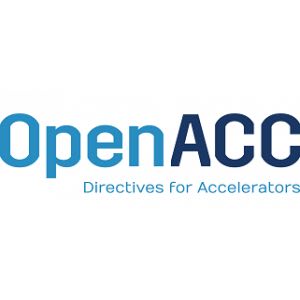 Today the OpenACC standards group announced a set of additional hackathons and a broad range of learning opportunities taking place during the upcoming GPU Technology Conference being held in San Jose, CA April 4-7, 2016. OpenACC is a mature and performance-portable path for developing scalable parallel programs across multi-core CPUs, GPU accelerators or many-core processors.
Today the OpenACC standards group announced a set of additional hackathons and a broad range of learning opportunities taking place during the upcoming GPU Technology Conference being held in San Jose, CA April 4-7, 2016. OpenACC is a mature and performance-portable path for developing scalable parallel programs across multi-core CPUs, GPU accelerators or many-core processors.
We are succeeding because of the developer-driven approach of our members, through events like Hackathons, and due to the increasing adoption of GPU computing as evidenced in the most recent Top 500 list. OpenACC is the only directives-based programming model for accelerators, such as NVIDIA GPUs, with multiple production implementations,” said Duncan Poole, OpenACC President. “OpenACC compilers and tools are an essential part of the basic tool chest for parallel programming, and are delivering performance portability across accelerators and CPUs today.”
OpenACC Schedule of Events at GTC
Attendees at GTC16 can learn about the successful use of OpenACC directives in several important scientific domains including weather, oil & gas, and computational chemistry. The GTC16 schedule also includes a large number of tutorials, labs, and lectures which showcase OpenACC technology and best practices used to compile, profile, debug, and scale HPC applications.
GTC attendees can learn firsthand from scientists and engineers who are using OpenACC every day, provide direct feedback to OpenACC members, and learn about coming features that will further broaden the applicability, effectiveness and ease-of-use of OpenACC. Registration details can be found at GPU Technology Conference.
Recent Developer Application Successes
The growing adoption of OpenACC in HPC applications have been demonstrated across multiple disciplines. Several significant applications in the areas of computational fluid dynamics, astrophysics, cosmology and medicine have recently been parallelized using OpenACC. More details on these success stories.
OpenACC enables parallel programming for both CPUs and GPUs using a single version of application source code. “We were extremely impressed that we can run OpenACC on a CPU with no code change and get equivalent performance to our OpenMP/MPI implementation,” said Wayne Gaudin and Oliver Perks of the Atomic Weapons Establishment in the UK. “The same code delivers up to 4x faster performance on a GPU. From a performance portability and code future proofing perspective, this is an excellent result.”
OpenACC Hackathon Momentum Increases in 2016
OpenACC members will present at GTC16 on recent Hackathon success stories from the OpenACC EuroHack, hosted earlier in March by TU-Dresden in Germany. Plans have been announced for the next three Hackathons, one each at University of Delaware in May, the Swiss National Supercomputing Center in July, and the Oak Ridge National Laboratory in October.
We fill each of our OpenACC workshops because the demand is so great. These are classroom events that require a real commitment, so getting 100 busy researchers to attend every time shows some genuine enthusiasm in the community,” said John Urbanic, Parallel Computing Specialist at the Pittsburgh Supercomputing Center.
OpenACC plays an essential role in the roadmap to application and performance portability on Summit, the OpenPOWER+Tesla accelerated computing system being developed as part of the DOE CORAL program. The Oak Ridge Leadership Computing Facility continues to be a key advocate. Summit will replace ORNL’s Titan system, currently ranked as the world’s second fastest supercomputer on the Top500 list.



